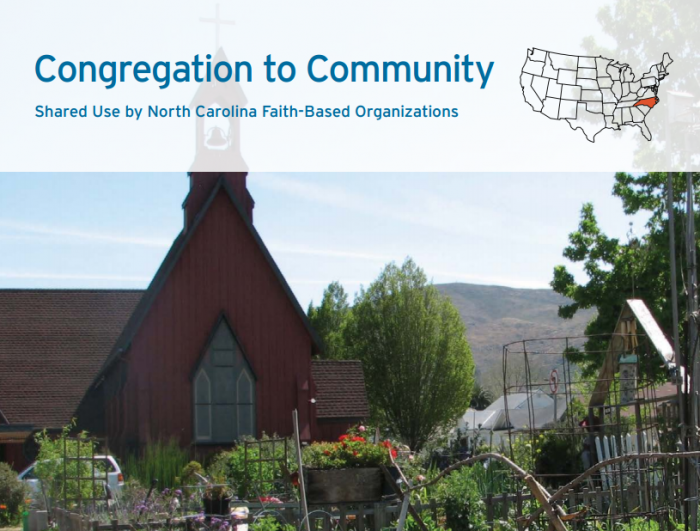Over the past few decades, faith-based organizations across the country have been placing greater emphasis on health and wellness.
This reflects a growing recognition of the links between physical, mental, and spiritual health, as well as the integral role that faith-based institutions play in communities. Congregations are serving healthier foods and beverages;
sponsoring health fairs; hosting exercise and cooking classes; planting gardens; and adopting healthy eating, physical activity, and tobacco free policies. In North Carolina, congregations are leading the way to better health through programs such as the North Carolina Council of Churches’ Partners in Health and Wholeness initiative and the Faithful Families Eating Smart and Moving More project.
As congregations turn their focus to health and wellness, many recognize the need to direct these efforts to their communities in addition to their members. Just as faith-based organizations often serve their communities through food pantries, afterschool programs, meal programs, and other services, many now see shared use of otherwise underused or unused recreational facilities as a promising and cost-effective way to enable both congregants and community members to be healthier.


